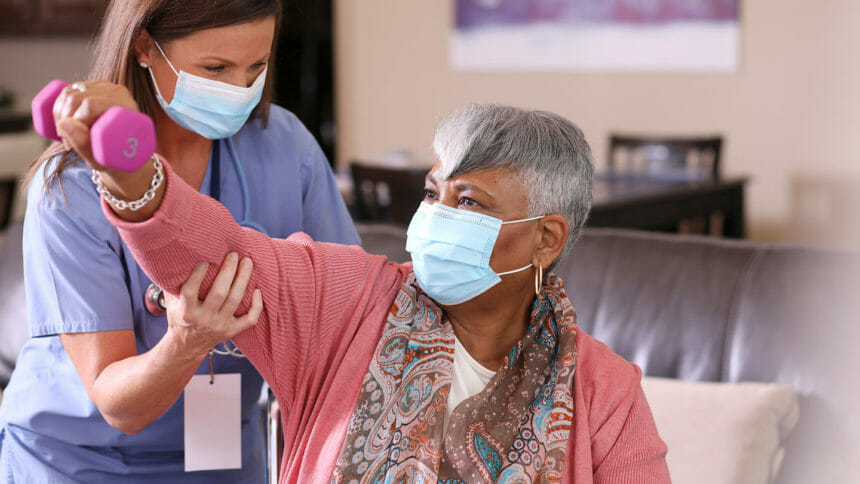
Whether it’s delivered virtually or in-person, cardiac rehabilitation has the same potential to improve healthcare measures.
That’s the takeaway from a new study that compared in-person, hybrid and virtual cardiac rehabilitation on patient health improvements, according to investigators from the University of California, San Francisco.
The 187 study patients received one of the three therapy types and all received individually tailored exercise training and health behavior counseling. Those in the hybrid and virtual cohorts received either synchronized video exercise or telephone visits. The study was conducted between October 2019 and May 2021.
All groups had similar improvements in the six-minute walk test, and the hybrid and virtual patients had similar improvements in blood pressure control and anxiety. The virtual group had the least improvement in depression symptoms. There were no improvements in waist-to-hip ratio or cardiac self-efficacy (belief that one can manage their cardiac disease), investigators reported.
The researchers noted that virtual cardiac rehabilitation was relatively adaptable, but that there is a need for “training and organizational adjustments” in adopting virtual cardiac rehabilitation“Virtual and hybrid CR have the potential to expand availability without compromising outcomes,” the investigators concluded.
The study was published in the Journal of Cardiopulmonary Rehabilitation and Prevention.
Related articles:
Few Medicare recipients enroll in cardiac rehab, despite expanded benefits
‘Pragmatic’ heart failure rehab benefits frail seniors, study finds



